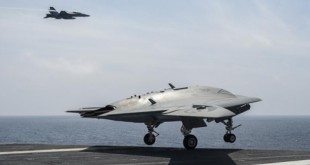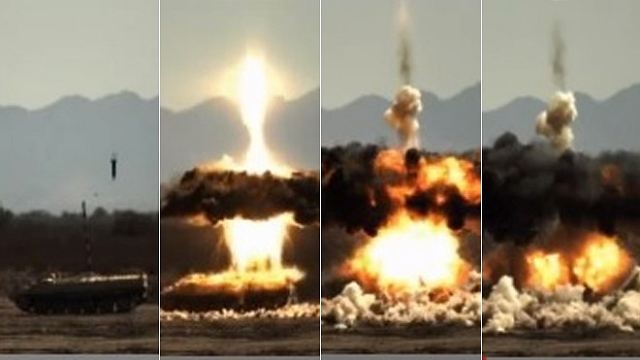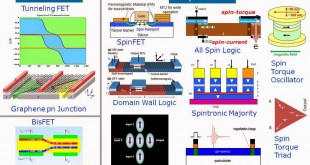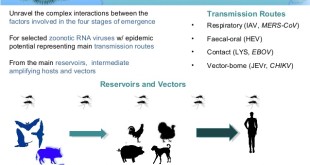Free Space Optical or Laser communications is creating a new communications revolution, that by using visible and infrared light instead of radio waves for data transmission is providing large bandwidth, high data rate, license free spectrum, easy and quick deployability, low mass and less power requirement. It also offers low …
Read More »Yearly Archives: 2020
DARPA’s SHIELD developed technologies for secure reliable authentication for ICs subject to hardware Trojans, cloning, counterfeit or recycling in Military systems that pose critical National Security Risk
Outsourcing of integrated circuit (IC) and printed circuit board (PCB) design, fabrication, packaging, and testing have dramatically reduced the time and cost of product development. In doing so, this has enabled the widespread availability of microelectronics, which has indeed transformed modern life. However, unintended consequences include malicious design alteration (i.e., …
Read More »Threats to ICT supply chains including Counterfeit electronic components and Hardware Trojans present critical risk to military and security systems
Information and communications technology, encompassing digital services and infrastructure, cybersecurity and software, is ubiquitous throughout the economy and society. As the digital transformation gathers pace, the number and complexity of ICT services is accelerating. Information and Communications Technology (ICT) relies on a complex, globally distributed, and interconnected supply chain …
Read More »New technologies enable Very Long Range Air-to-Air missiles to reach targets at longer ranges, with heavier payloads and with greater precision
The Air-to-Air Missile (AAM) is a potent guided missile that changed the shape of aerial combat forever. Capable of destroying fast and maneuverable jet fighters at ranges sometimes exceeding 100 kilometers, these high-tech weapons dominate the skies. The probability of Aerial dogfights are becoming less in modern times, as US …
Read More »Error-correction in Quantum Computers using Machine learning and Neural Networks proving successful strategy
‘The development of a “quantum computer” is one of the outstanding technological challenges of the 21st century. A quantum computer is a machine that processes information according to the rules of quantum physics, which govern the behaviour of microscopic particles at the scale of atoms and smaller said Dr Chris …
Read More »US Army demonstrates Manned-Unmanned Teaming capability for gaining Air Superiority in A2/AD Environment
US military is facing increasingly Anti-access /Area denial environment, a set of overlapping military capabilities and operations designed to slow the deployment of U.S. forces to a region, reduce the tempo of those forces once there, and deny the freedom of action necessary to achieve military objectives . Unmanned Air …
Read More »Niobium is one of the strategic minerals Deemed Critical to U.S. National Security and the Economy
The Department of the Interior published on May 18, 2018, a list of 35 mineral commodities considered critical to the economic and national security of the United States. These minerals have been designated as critical to the US’s national interest in part because of their potential military and industrial applications. …
Read More »Raytheon’s Excalibur is all weather smart artillery that triples the range and can strike moving targets with high precision
The Excalibur smart artillery shell has a ruggedized Global Positioning System (GPS) satellite navigation receiver and uses satellite signals to help guide itself to its intended targets. It first was fielded in Iraq in 2007 for urban or complex-terrain engagements in which collateral damage must be kept to a minimum. …
Read More »Beyond CMOS or More Moore technologies to power Next Generation Computers, communications, industrial and Defense Systems
In 1965 R&D Director at Fairchild (and later Intel co-founder) Gordon Moore predicted continued systemic declines in cost and increase in performance of integrated circuits in his paper “Cramming more components onto integrated circuits.”Moore’s Law which stated that the number of transistors on a chip will double approximately every two …
Read More »DARPA’s PREEMPT to predict next pandemic due to Zoonotic Viruses like COVID-19 and plan proactive interventions
In recent weeks, concern over the emergence of a novel coronavirus in China has grown exponentially as media, experts and government officials around the world have openly worried that this new disease has the potential to develop into a global pandemic. As the ongoing coronavirus outbreak centered in China has spread …
Read More » International Defense Security & Technology Your trusted Source for News, Research and Analysis
International Defense Security & Technology Your trusted Source for News, Research and Analysis









